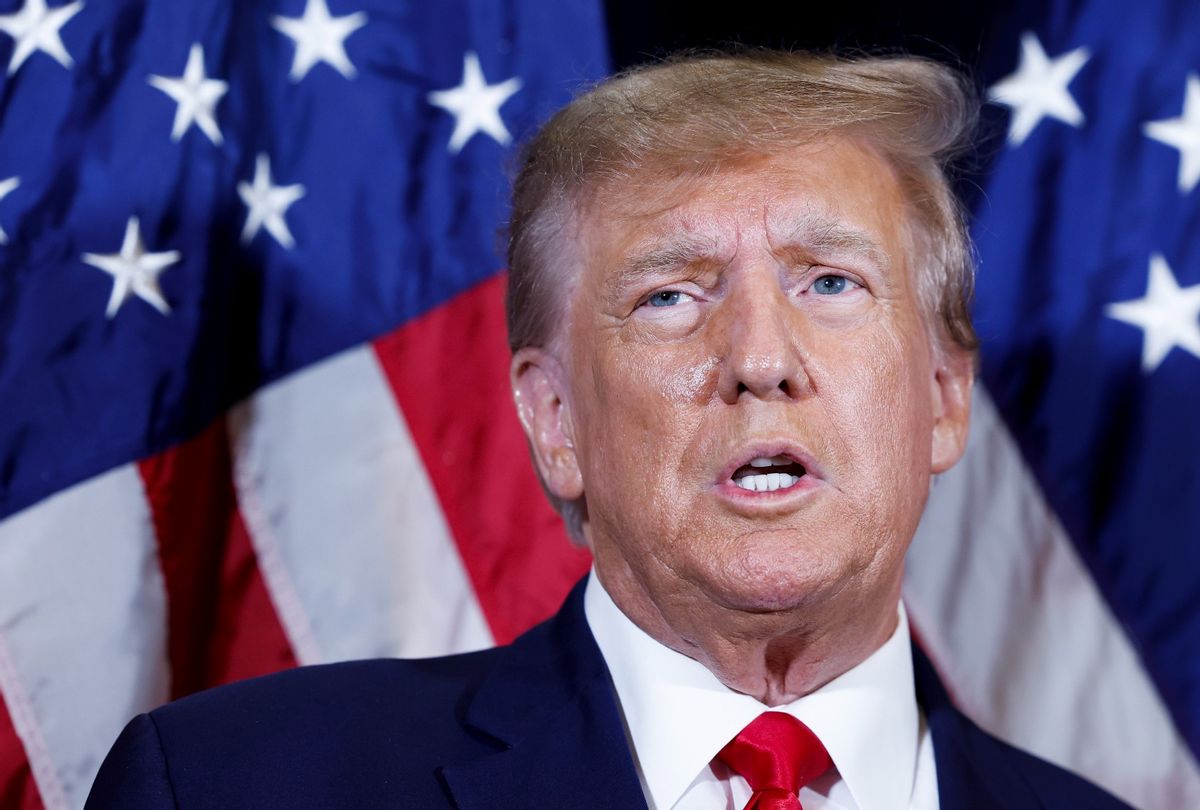A federal appeals court wasted no time in rejecting former President Donald Trump's appeal of an order forcing his lawyer to testify and turn over evidence over which he had asserted attorney-client privilege.
Judge Beryl Howell, the chief judge of the D.C. district court, last week ordered Trump attorney Evan Corcoran to testify about topics he previously refused to discuss before a federal grand jury investigating classified documents found at Mar-a-Lago and to turn over evidence, including "handwritten notes, invoices and transcriptions of personal audio recordings." Howell's order came after special counsel Jack Smith's team found evidence that Trump may have intentionally misled Corcoran to use his services in furtherance of a crime, invoking the crime-fraud exception that allows prosecutors to pierce attorney-client privilege.
Trump's team appealed the order and a three-judge panel on the D.C. Circuit Court of Appeals set unusually tight deadlines in the case, ordering Trump's team to submit their argument by midnight on Wednesday and the Justice Department to submit their response by 6 am that morning. The court shot down Trump's bid by Wednesday afternoon, according to Politico, though the secret court proceedings remain under seal.
Corcoran is now set to testify before the grand jury on Friday and Trump's team is not expected to appeal to the Supreme Court, according to CBS News.
"A major ruling, made with astonishing speed," tweeted CNN legal analyst Elie Honig, a former federal prosecutor.
"DC Circuit making unbelievably quick work rejecting Trump's challenge to the district court order requiring Evan Corcoran to testify AND to turn over docs," agreed former U.S. Attorney Harry Litman, adding that the transcriptions and other "evidence could be huge."
Some experts questioned if there was unreported information that prompted the court to act so fast.
"The remarkable speed" makes "little sense," tweeted former FBI counterintelligence official Pete Strzok, before citing a thread by Scott Anderson, a senior fellow with the National Security Law Program at Columbia University suggesting that one theory is that "Trump still has classified documents – posing an ongoing risk to national security."
"I don't feel like people are grasping how strange it is for the D.C. Circuit to have moved at lightning speed on this. Or what I think it might mean: that DOJ thinks there is still classified information in the wild and Corcoran can lead them to it," Anderson wrote on Twitter.
Want a daily wrap-up of all the news and commentary Salon has to offer? Subscribe to our morning newsletter, Crash Course.
Former federal prosecutor Andrew Weissmann, who served on special counsel Bob Mueller's team, agreed that one plausible explanation for the tight schedule is that the court is "really concerned" about recovering potential national security information.
Weissmann in an appearance on MSNBC on Thursday added that it is "very unusual" for prosecutors to try to pierce attorney-client privilege but Howell issued a similar order when he was prosecuting former Trump campaign chief Paul Manafort in the Mueller probe.
"In order to make this ruling, the judge has to find that it is likely that Donald Trump committed a crime. It's not necessary that the lawyer did, but at least the client did. The standard is likely. That's exactly what she wrote in the [Paul] Manafort case that I handled," he explained.
"So this is a huge deal," he added. "In terms of the case, this really could be the key evidence of obstruction."
Litman in an appearance on MSNBC predicted that the evidence produced by Corcoran could be the "final nail" in Jack Smith's case.
"We have tantalizing personal audio recordings," Litman explained. "Clearly, it is almost — the least it could be is very strong evidence of Trump participating in a clear violation with that subpoena and the false declaration. It could be the centerpiece of this Mar-a-Lago case."
Read more
about the Mar-a-Lago case



Shares